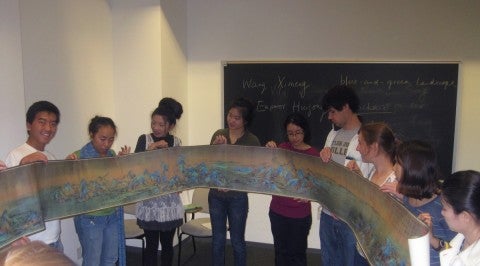"Performing Paradox: Sparks of a queer crip dance aesthetic"
Queer disability culture is an emergent and rapidly growing aesthetic field due to the constant presence of the virtual and the many millions of people newly or further disabled by Covid-19. Queer disabled cultural workers including burlesque performers, TikTok stars, and performance artists have historic roots in dance histories that have been silenced in favor of mainstream historical narratives. This talk points to the presence of disability in dance cultures as a paradox and theorizes components of a queer crip dance aesthetic. Using examples from queer crip disability dance performance across multiple genres sourced from videos, digital media, and live performances, Dr. Havard discusses the aesthetic principles of multiplicity, leakage, desire, spasm, and disruptive authenticities. These aesthetic strategies are an important part of the political fight against ableism as it is entangled with many aspects of systemic oppression and the movement toward the valuation of sick and disabled bodyminds in a larger cultural context.
====
Julia Havard (they/them/ze/zir) is a nonbinary white queer disabled independent scholar, access worker, editor, and dance artist based in Philadelphia, PA. Ze received zir PhD from UC Berkeley in Performance Studies, focusing on queer and disability arts and culture. Ze completed Postdoctoral Fellowships at Dartmouth College and the Smithsonian National Museum of American History. Their freelance practice, Fracture Access Consulting, supports institutions, artists, and organizations in cultivating spaces of disability belonging. More about zir publications and performances can be found at www.juliahavard.net and you can get in touch at julia.havard@gmail.com.
===
[Image: Burlesque Performer Chaos X Machina, photograph by Meneldor Photography. Courtesy of performer.]

